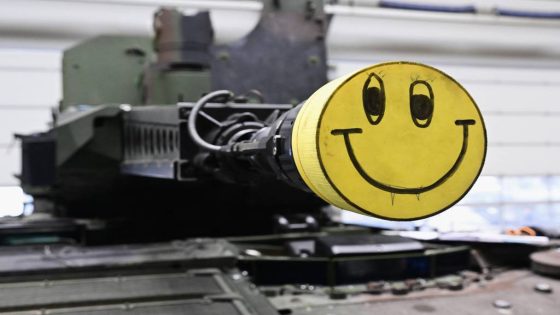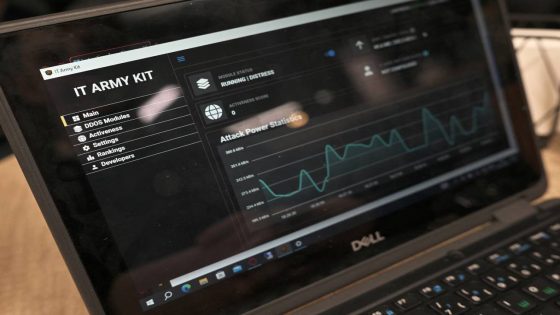The legal warfare over the 2024 election is well underway. The MAGA shenanigans of the Georgia election board have overshadowed disturbing developments in Arizona. Last week, the Supreme Court signaled it would revisit an issue it had settled over a decade ago, allowing a new Arizona law to go into effect requiring proof of citizenship to register to vote. Reopening the issue at the last minute and after registration has begun, the justices are fomenting a false public narrative that noncitizens are a threat to U.S. elections. This is the latest signal that the justices are in cahoots with former President Donald Trump and may be prepared to meddle in the election—unless it is decided by margins too large to tamper with.
The case is Republican National Committee v. Mi Familia Vota, where the Republican National Committee requested eleventh-hour “emergency” changes to Arizona’s voter registration laws—even though the state’s vote-by-mail registration window has already begun. The lawsuit strikes at the heart of voting rights and fair elections: Not only does the RNC seek to prevent tens of thousands of eligible Arizonans from lawfully casting ballots, but they also advance the canard that noncitizens are voting in U.S. elections. As the libertarian Cato Institute noted: “there is no good evidence that noncitizens voted illegally in large enough numbers to actually shift the outcome of elections.” This high-court intervention is wrong, and the stakes could not be higher: Joe Biden won Arizona in 2020 by only 10,457 votes, and it’s unclear what impact the court’s new ruling could have in November.
The court’s unsigned order in the RNC case allows an Arizona law to go into effect requiring proof of citizenship to register to vote. This strongly suggests that the conservative wing of the court, three of whom are Trump appointees, will ultimately strike down a portion of the 1993 National Voter Registration Act, a crucial federal voting rights law—formerly championed by Justice Antonin Scalia—as unconstitutional when it ultimately hears the case.
While the court in this case granted the RNC’s request to enable a law that required documentary proof of citizenship for all new registrations, it refrained from granting another to strike the 42,301 voters who are already registered without documentation. However, Justices Clarence Thomas, Samuel Alito, and Neil Gorsuch would have done the latter as well.
And the threat is not over, since the court will have other potential opportunities to interfere with Arizona’s voter rolls. For instance, Trump policy architect Stephen Miller and his America First group filed a lawsuit in Maricopa County, just a few weeks ago, to compel the county recorder to engage in “list maintenance” by submitting the names of voters registered without documentation to the Department of Homeland Security and the state attorney general.
Although Miller’s lawsuit may (and hopefully will) go nowhere, the court’s election season intervention could tip the election even if the law applies only to prospective registrations. Voter registration is surging in the wake of President Joe Biden’s exit from the race, with nonpartisan registration group Vote.org reporting tens of thousands of new registrants across the nation, 83 percent of whom were under the age of 34, in just the first two days following Biden’s announcement. Although data from Arizona is not yet available, the trend continues in battleground states nationwide. With the registration period already well underway, the court’s new ruling means that information previously provided to aspiring voters to ensure their eligibility to vote is no longer accurate. This compounds Arizona’s preexisting registration pain points, where over 20,000 residents had their registrations put on hold back in the July primary—many due to inconsequential technical errors—well before this court decision.
How did we get here? In an era three decades ago when the right to vote enjoyed more bipartisan support, Congress passed the NVRA to standardize voter registration procedures across the country. To do so, it created a national registration application form, which requires applicants to swear under penalty of perjury to their status as U.S. citizens, but does not require voters to submit additional supporting documentation. Nonetheless, a decade later in 2004, Arizona enacted Proposition 200, which compelled voters to submit proof of citizenship, such as a passport or birth certificate, to register to vote.
The Supreme Court in 2013 said Arizona couldn’t do that. In a 7–2 decision, authored by Scalia and joined by Chief Justice John Roberts, the court held that the federal NVRA preempts Arizona’s conflicting documentation requirements because “the power of Congress over the ‘Times, Places and Manner’ of congressional elections ‘is paramount, and may be exercised at any time, and to any extent which it deems expedient.’ ”
Arizona already requires proof of citizenship to vote in state elections, and almost all Arizona voters provide such proof. However, there are a few thousand “federal only” voters in Arizona who have not submitted additional documentation, many of whom register in precincts on college campuses (so they’re likely college students without drivers licenses, not noncitizens who are ineligible to vote).
Emboldened by a party climate that seeks to unravel constitutional norms and the rule of law, in 2022 Arizona Republicans passed a statute that sought—in clear conflict with the Supreme Court’s 2013 case—to reimpose the citizenship documentation requirement for federal elections. The Supreme Court had explained that the NVRA “precludes Arizona from requiring a Federal Form applicant to submit information beyond that required by the form itself.” In this age where precedent is no impediment to the court reaching its ideological aims, the RNC’s recent bid appears to have been successful: Under the court’s order last week, the new Arizona law requiring all new registrations to provide documented proof of citizenship will go into effect. And once it reviews the case fully, which we anticipate it will next year, it may well revisit the status of the 40,000-plus voters who have already been registered.
To add insult to injury, the court’s conservative wing has been dizzyingly hypocritical in reversing itself here. In the 2020 election, Justices Brett Kavanaugh and Gorsuch invoked the so-called Purcell principle, which stands for the idea that federal courts should not interfere with state voting laws close to an election. The court’s last-minute changes to election rules here could make a difference in November. Not all voters without an ID vote Democratic, but many do. That includes college students who are away from their homes and, consequently, without the sort of documentation that Arizona’s new law requires. Among 18-to-29-year-old registered voters in battleground states, Harris leads Trump by 9 points.
Beyond the age-old strategy of voter suppression, the RNC’s agenda in bringing this case so close to the election is undoubtedly meant to serve as a psychological operation to sow seeds of doubt in the presidential election by reviving the debunked conspiracy theory about outcome-determinative noncitizen voting. And they are not alone: 24 states wrote an amicus brief in support of Arizona alleging that “aliens are illegally voting in elections” in numbers sufficient to have won North Carolina for Obama in 2008. In support for these assertions, the states cite a single, deeply methodologically flawed and widely debunked study, whose author has long lamented his work being twisted in this way.
Contrary to the conspiracy theories, there are plenty of benign reasons why people sometimes don’t have proof of citizenship, many corresponding to income level. Extensive research has demonstrated that nearly 9 percent of voting-age citizens “do not have a non-expired driver’s license,” while “another 12 percent (28.6 million) have a non-expired license, but it does not have both their current address and current name.” The same study found that “people in lower income groups are more likely to think photo IDs are not required for voting in person or to be unsure.” Citizens might not have access to documents that are locked in a safety deposit box at a bank, or because they have been lost or stolen in times of moving or hardship. That’s why the NVRA’s oath requirement works so well: It allows people who don’t have easy access to adequate documentation to vote, while raising the specter of criminal penalties should they lie.
Not only are Arizona’s restrictions burdensome, they are unnecessary. States have many existing safeguards in place to ensure that noncitizens are not on the voter rolls and cannot cast ballots. For example, states can cross-reference state DMV records, jury duty records, and Social Security records to ensure that noncitizens do not register to vote.
Source Agencies



